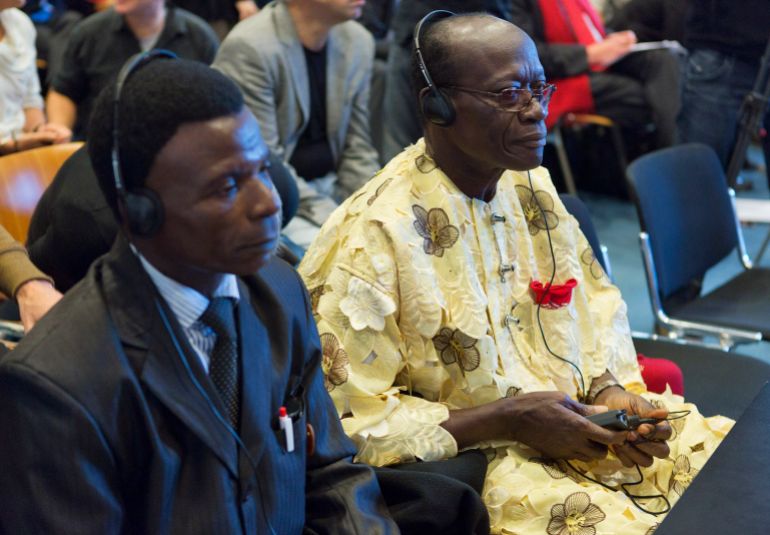Protesters have taken to the streets in capital Dakar against what they call an increasingly repressive state.
Violence during protests in the Ngor neighbourhood of the Senegalese capital, Dakar, has killed one teenager and wounded 30 people as young protesters took to the streets against an increasingly “repressive state”.
The city witnessed violent protests on Tuesday night when schoolchildren demanding a high school to be built instead of a police station were confronted by police in full gear.
“The government is not listening to us, the president is not listening to us, no one wants to help us, so we are expressing ourselves as we can,” a protester who did not want to give his full name told Al Jazeera.
Checkpoints and security officers were placed to prevent other residents and journalists from entering Ngor. Al Jazeera correspondent Nicolas Haque was harassed and stopped for a few hours before he could resume reporting.
“We have to maintain operations to keep law and order to protect the population,” said Senegal’s government spokesperson Abdou Karim Fofan. “People should be able to demonstrate but people should also be able to go to work and to schools without being stopped by demonstrations,” Fofan said.
But residents of Ngor said police stormed their homes while they were sleeping to arrest and beat dozens of people, Haque reported after he could manage to enter the neighbourhood.
“This is not a political protest, and what is happening is incomprehensible to us we don’t understand. All we want is a high school, not a police station,” Souley Mbengue, deputy mayor of Ngor, told Al Jazeera.
The protest happened hours after a call by Senegalese opposition figure Ousmane Sonko for civil disobedience by his supporters following a court ruling that threatens his candidacy in upcoming presidential elections.
A court on Monday suspended Sonko’s sentence in a libel case that could make the popular politician ineligible to stand in the 2024 presidential vote – the latest twist in a long-running legal saga that has stoked further tensions in Dakar, already shaken by days of unrest.
Sonko rejected the court ruling, pledging instead to pursue his candidacy and calling for a mass protest against President Macky Sall.
Senegal’s constitution allows only two presidential terms, but some fear Sall will use a recent tweak to the constitution to reset his mandate, which ends in 2024, allowing him to run again.
“Nobody can prevent me from being a candidate,” Sonko said in a speech streamed online on Tuesday. “What happened yesterday is not a travesty of justice but judicial banditry.”
“I repeat my call for resistance and ask the Senegalese to stand up and face Macky Sall,” he said.
The authorities have rejected Sonko’s allegations that the justice system is being used to shut him out of the presidential race. The tense standoff has triggered protests and sometimes violent clashes between security forces and his supporters in recent years.
Sonko did not say if he planned to appeal the court ruling at the Supreme Court within the six-day deadline, but called on supporters to attend an opposition rally scheduled for Friday in Dakar.
“We want the 12th [of May] to be a protest like nothing the country has ever seen,” he said.
Friday’s rally is being organised by the F24 platform, a large group of civil society organisations. Members wish to show their opposition to a third term by Sall and allege that the authorities have misused the justice system for political ends.
Aside from the libel case, Sonko is also charged with raping a beauty salon employee in 2021 and making death threats against her. He denies any wrongdoing, but the outcome of that case could also affect his electoral eligibility. The next court hearing is scheduled for May 16.
Tuesday’s deadly demonstration and Sonko’s call for protests on Friday have further heightened tensions and poked holes in the longstanding image of a country largely viewed as one of the most stable democracies in West Africa.






